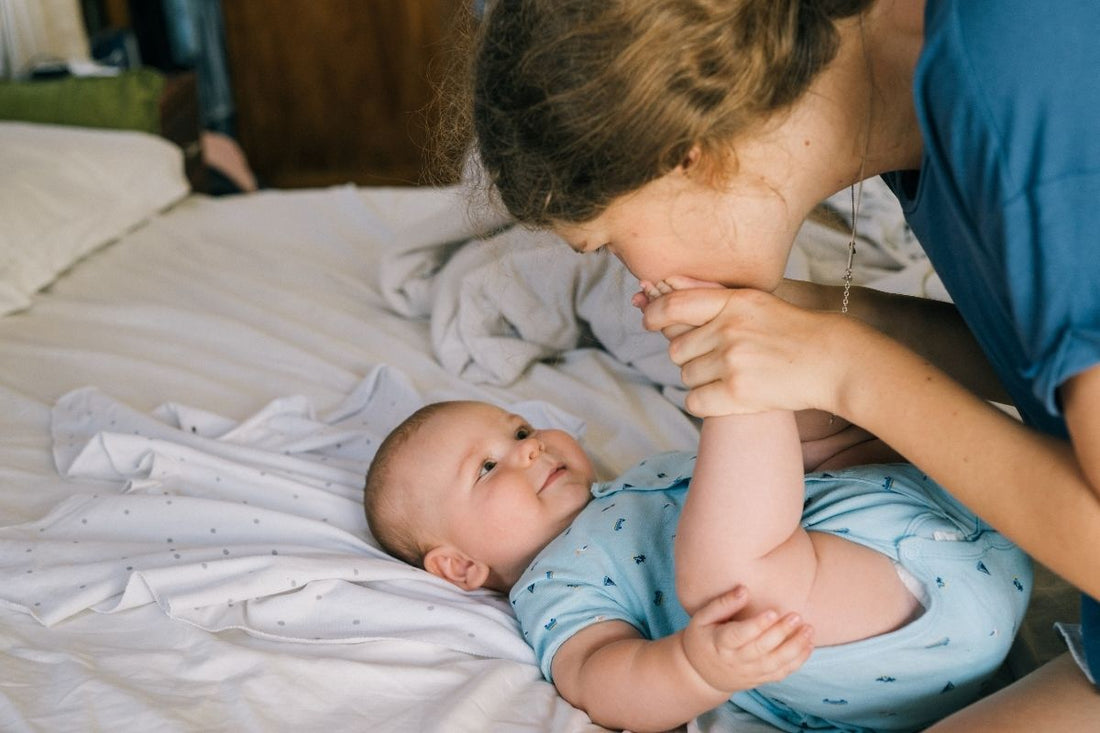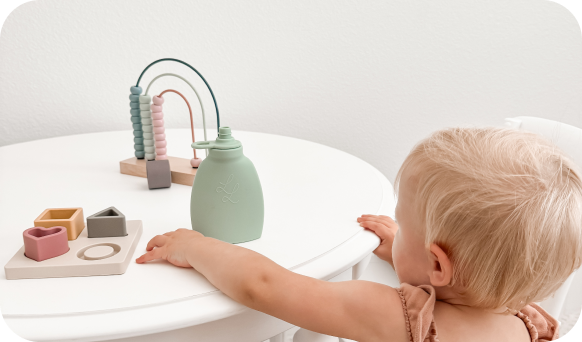Eco-Friendly Parenting: Reducing Mealtime Waste

'Hi, I’m Anna – mom to two wild littles, Theo (2.5) and Julia (7 months). Until recently, I did the same as other parents and used lots of disposable products in my kitchen. But when I got married and babies came along, I realized the truth: there was far too much trash from our kitchen, and much of it happened at mealtimes.
We quickly decided to follow eco-friendly parenting methods. These methods don’t require perfection; you just need to make simple, helpful changes that build up slowly. When you get used to them, you’ll really love the results: less mess, fewer dishes in the sink, and less money spent.
In this article, I’ll explain how we reduced plastic waste and embraced sustainable mealtime solutions without sacrificing convenience or toddler sanity. You’ll also meet our two secret weapons: the Palmetto Pouch and the Coastal Cup. Read on to learn more.
Why Mealtime Waste Is a Big Deal
For now, we should look at the main ideas. You might not know that single-use food packaging takes up a big part of the trash we produce at home. Disposable baby food pouches, plastic spoons, zip bags, juice boxes and cling wrap are easy to find and are not easily gone after we throw them out.
These plastics:
Sit in landfills for hundreds of years.
When you’re feeding a baby or toddler multiple times a day, that adds up quickly. But the good news? With just a few swaps, you can reduce plastic waste and create a healthier space for your family and the planet.

Start Small: Baby Steps Toward Sustainability
Going green doesn’t have to mean going extreme. You don’t need to swap your entire kitchen overnight or spend a fortune on new gear. We started with just one or two small changes, and over time, those little tweaks made a big difference, for our family and for the planet. Trust me, once you see how easy and rewarding it is, you’ll wonder why you didn’t start sooner!
Here are the first simple swaps we made and ones I totally recommend for any parent looking to embrace eco-friendly parenting:

Switched from plastic snack bags to reusable containers: I keep a stash of small containers and our beloved Coastal Cup on hand for snacks. Whether it's fruit slices or crackers, everything stays fresh, and nothing ends up in the trash.
Replaced paper napkins with cloth wipes: We use soft, washable cloth wipes for hands, faces, spills, you name it. They’re gentler on the skin and way cuter, too.
- Used silicone baby spoons instead of disposable: These last through countless meals, don’t bend or break, and feel much better in tiny hands (and in the dishwasher!).
- Choose glass storage over cling wrap: Leftovers now go straight into glass containers with lids. There is no more waste of plastic wrap or weird smells from reusing zip bags.
- Ditched single-use pouches for smoothies and purees: Now, my two enjoy The Palmetto Pouch for their snacks and packing up purees doesn’t make me feel guilty anymore. It’s durable, easy to wipe down and kids enjoy using it.
Little steps can save you money and help the environment. One swap at a time turns into a new routine before you know it. And the best part? Your kids learn that being kind to the planet is just how we do things. Want more eco-friendly insights? Check out this blog, Must-Have Sustainable Baby Gear: Top Picks for Eco-Conscious Parents.
Meet Our Favorite Reusable Baby Products
Okay, real talk, if I had to choose just two reusable baby products to keep forever, it would be the Palmetto Pouch and the Coastal Cup. These two have made such a difference in our routine.
1. The Palmetto Pouch:
This is our go-to for smoothies, yogurt, apple sauce, you name it. Theo loves sipping his breakfast smoothie while we’re loading up the car, and there are zero spills.
Why I love it:
Dishwasher-safe and easy to fill
- First reusable pouch made from medical grade silicone
- Cuts down on single-use pouches
- Stands up well to toddler (dropping it 40 times a day)
2. The Coastal Cup:
Julia is just starting with solids, and this reusable snack container is a game-changer. It’s soft enough for little hands and doesn’t spill when she flips it upside down (which she does a lot).
Why we use it every day:
Silicone petals for easy grab-and-go
- Snap-on lid keeps food fresh
- Great for fruit slices, crackers, and even tiny pasta
- Made from medical grade silicone, safe for teething babies too
Real-Life Wins: Messy Moments Turned Eco-Friendly
Wondering how this all plays out in real life? Here’s how we made messy moments a little greener.
1. Grocery Store Meltdowns, Handled:
The other day at the grocery store, Julia was starting to fuss, and Theo wanted a snack ASAP. I handed him his Coastal Cup filled with apple slices, and gave Julia some soft-cooked carrots in the Palmetto Pouch. No trash, no drama. Just calm snacking in the cart!
2. Less Laundry, Less Trash:
Before we switched, I was using paper towels to wipe faces, spills, and counters. Now we keep a small basket of cloth wipes near the high chair. At the end of the day, I toss them into the laundry. It’s cheaper, softer, and honestly just as easy.
Easy Sustainable Mealtime Tips
Want to reduce mealtime waste without overhauling your whole kitchen? Try these simple steps:
Buy in bulk and portion into reusable containers
- Use cloth bibs that can be washed, not tossed
- Cook extra portions and freeze leftovers in silicone trays
- Serve water in refillable cups instead of juice boxes
- Donate or swap gently-used baby gear instead of tossing it
Tip: Keep a small bin in your kitchen for recyclables; make it a fun sorting game with your toddler!

Teaching Toddlers to Be Earth-Friendly
You don’t have to wait until they’re older to start teaching green habits. Kids love routines and helping out. Here’s how we got Theo involved:
Letting him “pack” his snacks into the Coastal Cup
- Showing him where to put dirty cloth wipes
- Talking about trees, animals, and why we take care of them
- Celebrating “no-trash” snack times with high-fives
It’s amazing how quickly kids pick up on these things when you make it part of your everyday routine.
Why Reusables Make Sense (and Save Dollars)
Sure, there’s an upfront cost to reusable baby products, but they pay for themselves fast. We haven’t bought disposable pouches or plastic cups in months, and our trash bags last way longer now. Plus, the peace of mind knowing that we’re choosing nontoxic baby gear? Priceless. Want to learn more? Read the blog, "10 Zero Waste Lunch Ideas Your Kids Will Love."
Conclusion:
You don’t need to be a perfect zero-waste guru to make a difference. With a few reusable tools, some thoughtful swaps, and a pinch of patience, you can raise little ones with big eco-hearts. Eco-friendly parenting isn’t just good for the planet; it’s good for your wallet, peace of mind, and your child’s future.
Start small. Stay consistent. And enjoy every snack-filled, earth-loving moment along the way. Make the switch to smarter snacking; try the Palmetto Pouch and Coastal Cup for a cleaner, greener mealtime!
References:
1. United Nations. (n.d.). In Images: Plastic is Forever. Retrieved from https://www.un.org/exhibits/exhibit/in-images-plastic-is-forever
2. Fauna & Flora. (n.d.). How Does Plastic Pollution Affect Marine Life? Retrieved from https://www.fauna-flora.org/explained/how-does-plastic-pollution-affect-marine-life
3. Toxic-Free Future. (n.d.). Be Picky with Plastics. Retrieved from https://toxicfreefuture.org/healthy-choices/be-picky-with-plastics
